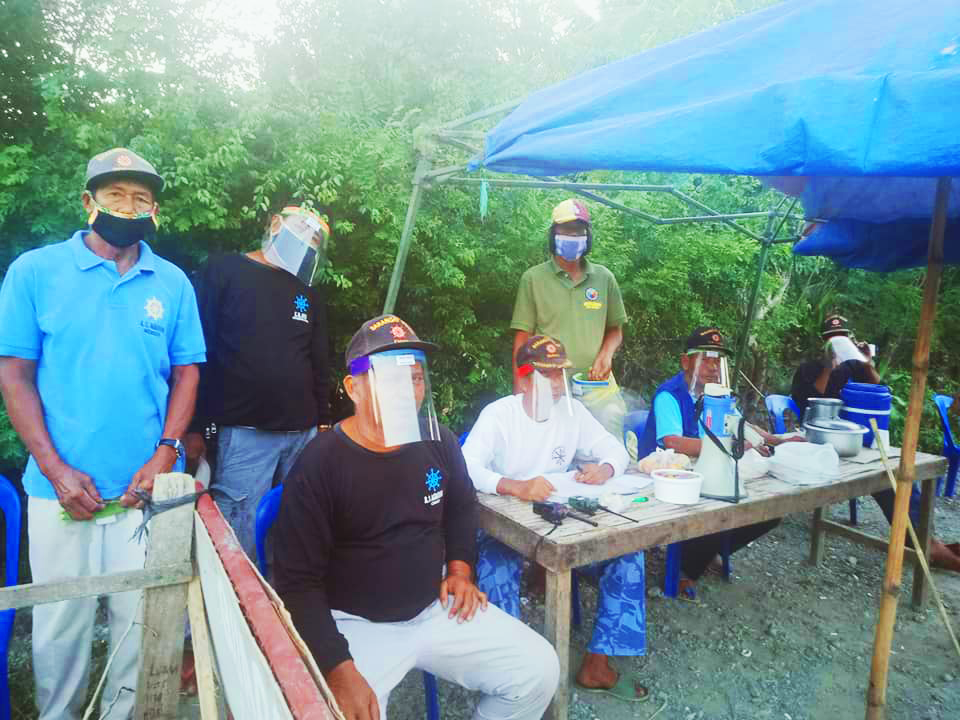Organization
Nueva Ecija University of Science and Technology
Best Practice Focus Area/s
Strategy, Citizens / Customers Operations
Year Implemented
March 2020 to present
This is a GBPR Entry
Summary
The NEUST Bayanihan Para sa Bayan, as the term suggests, is the product of the collaborative efforts of different stakeholders to ensure continuity of education and continuous delivery of services amidst the pandemic. The nominated best practice is the result of the collaborative efforts of the nominee, the community, and other partners and stakeholders during the pandemic. The activities cover March 2020, when the World Health Organization declared the pandemic, and Community Quarantines were implemented over the entire Philippine archipelago.
Background and Problem
The spread of the COVID-19 virus and the imposition of Community Quarantines have indeed put additional challenges to the many aspects of the daily lives of people and the operations of every institution. During these difficult times, the College of Public Administration and Disaster Management (CPDAM) took an active role in ensuring a successful response to COVID-19, providing a stream of actions at the institutional and community level.
One of the immediate challenges confronting the institution and perhaps other academic institutions is ensuring continuity of learning while promoting the safety and well-being of the students. While the pandemic has exposed the inadequacy of public education and the glaring digital divide, the College managed to continuously provide services to the students and its other clientele, including the Indigenous Peoples (IPS), whom the College supports in their pursuit of self-determination.

Solution and Impact
The first initiative is the decision to undertake preemptive measures to help contain the spread of the contagion, at least at the College level. The students were briefed about the following actions, and their parents and guardians were involved in the planning and decision-making. Students were then involved in disseminating information on what COVID-19 is, how it is transmitted, what preventive measures must be implemented, and the recent rules and policies that must be adhered to. In this way, the students gained further familiarity with the current events while raising awareness among readers, social media users, and fellow learners.
To ensure continuity of learning during the quarantine period, where limited movement is imposed to prevent the virus transmission, the College transitioned and assisted the students in adjusting from traditional face-to-face classes to remote learning. It even considered the students’ need for a digital device, which is crucial to cope with the new learning modality. The College, through its extension arm, the Center for Indigenous Peoples Education (CIPE), and donations from donors, provided brand new tablets to deserving IP Students. The faculty even went to the Indigenous Cultural Community of Carranglan in Nueva Ecija to install Wi-Fi for the IP Students.
Aside from education, the College, through the CIPE, continued with its Fingerlings Distribution program, where the IP families were given fingerlings of tilapia, gurami, and ulang to serve as additional sources of livelihood. This was made possible through the partnership between the Center and the Bureau of Fisheries and Aquatic Resources (BFAR)-Munoz. All these are aimed at maximizing resources and ensuring that services will be delivered amidst the pandemic. The College hopes to significantly extend the same or similar projects and services to the community even after the pandemic to benefit students and IP communities.
Milestones
The preemptive measures against virus transmission, the involvement of the parents in the decision-making regarding their children’s education, the continuity of learning, the heightened awareness regarding the modes of transmission, and the preventive measures against the spread of COVID-19 were considered milestones.
Other milestones of the projects were the following:
- Has encouraged the students to remain vigilant and to practice safety and health measures at all times;
- Production of 415 pieces of face masks and 460 pieces of the DIY face shields distributed to the frontliners of hospitals and barangays;
- Promoted positive mental health through planting vegetables and provision of vegetable seedlings;
- Production of instructional materials in the form of modules for the students;
- Partnership with the Provincial Social Welfare and Development Office and the National Commission on Indigenous Peoples-Nueva Ecija Provincial Office for the distribution and delivery of modules to students;
- Fingerlings given to ninety (90) families from the Kalanguya ICC and 54 IP families from Gabaldon.
